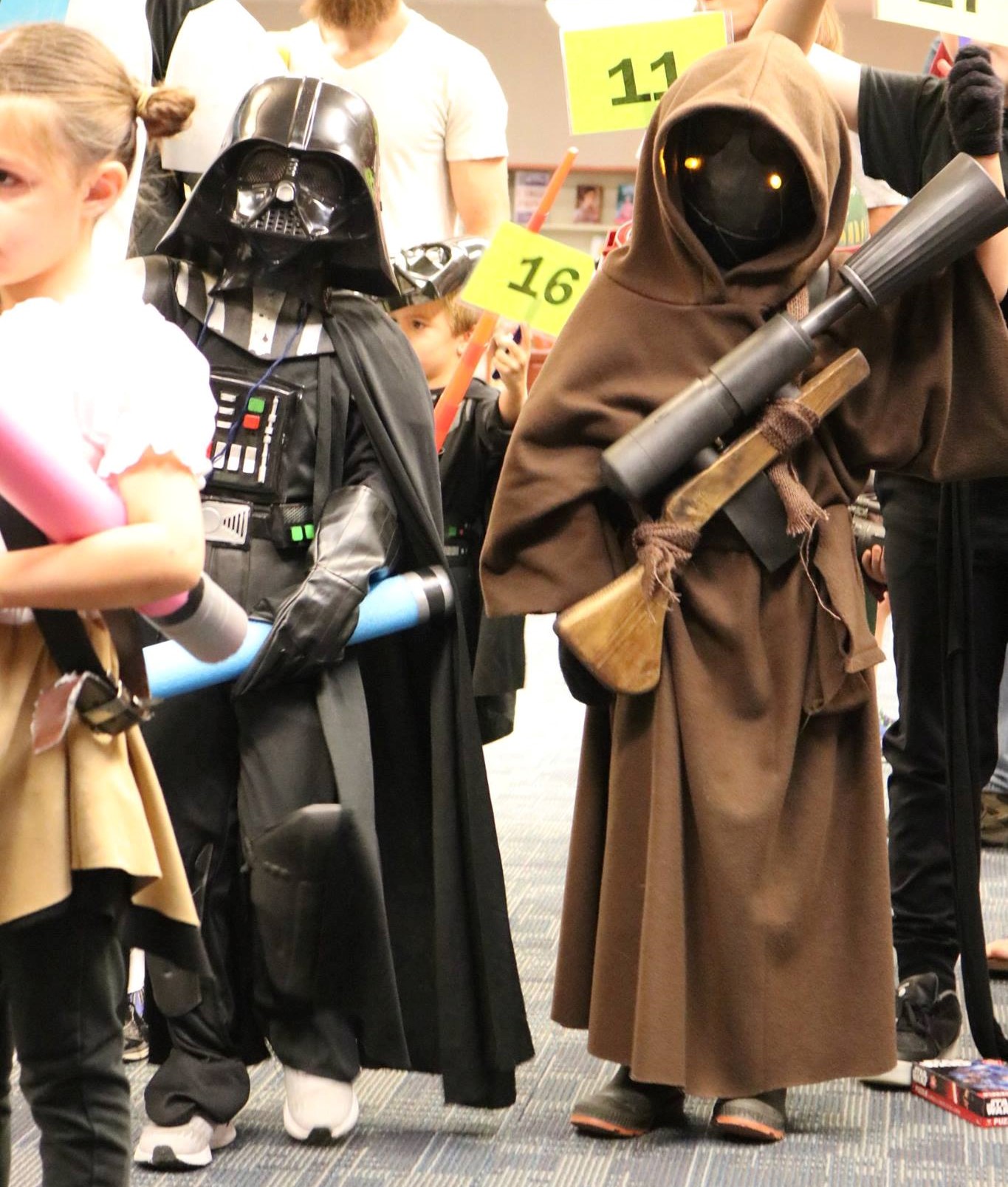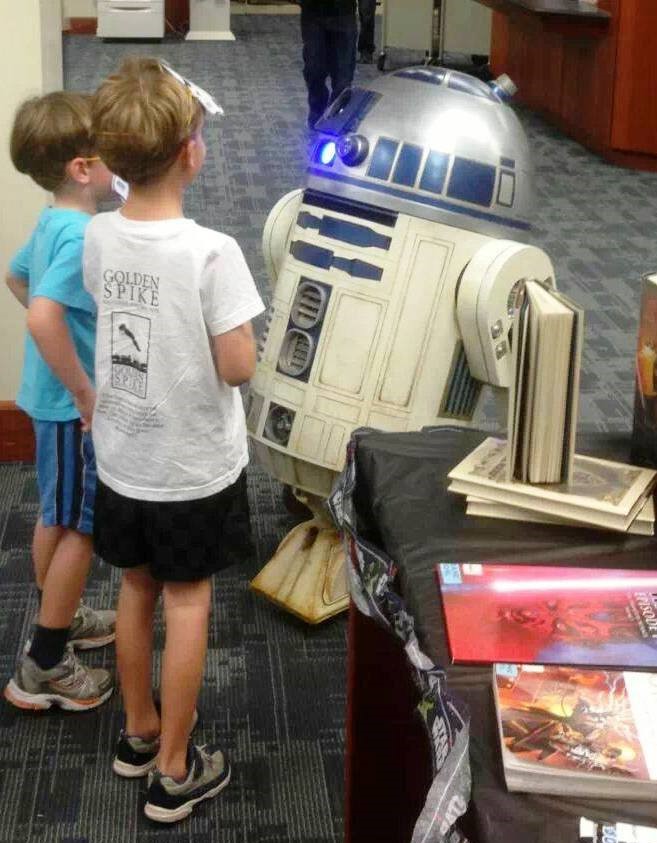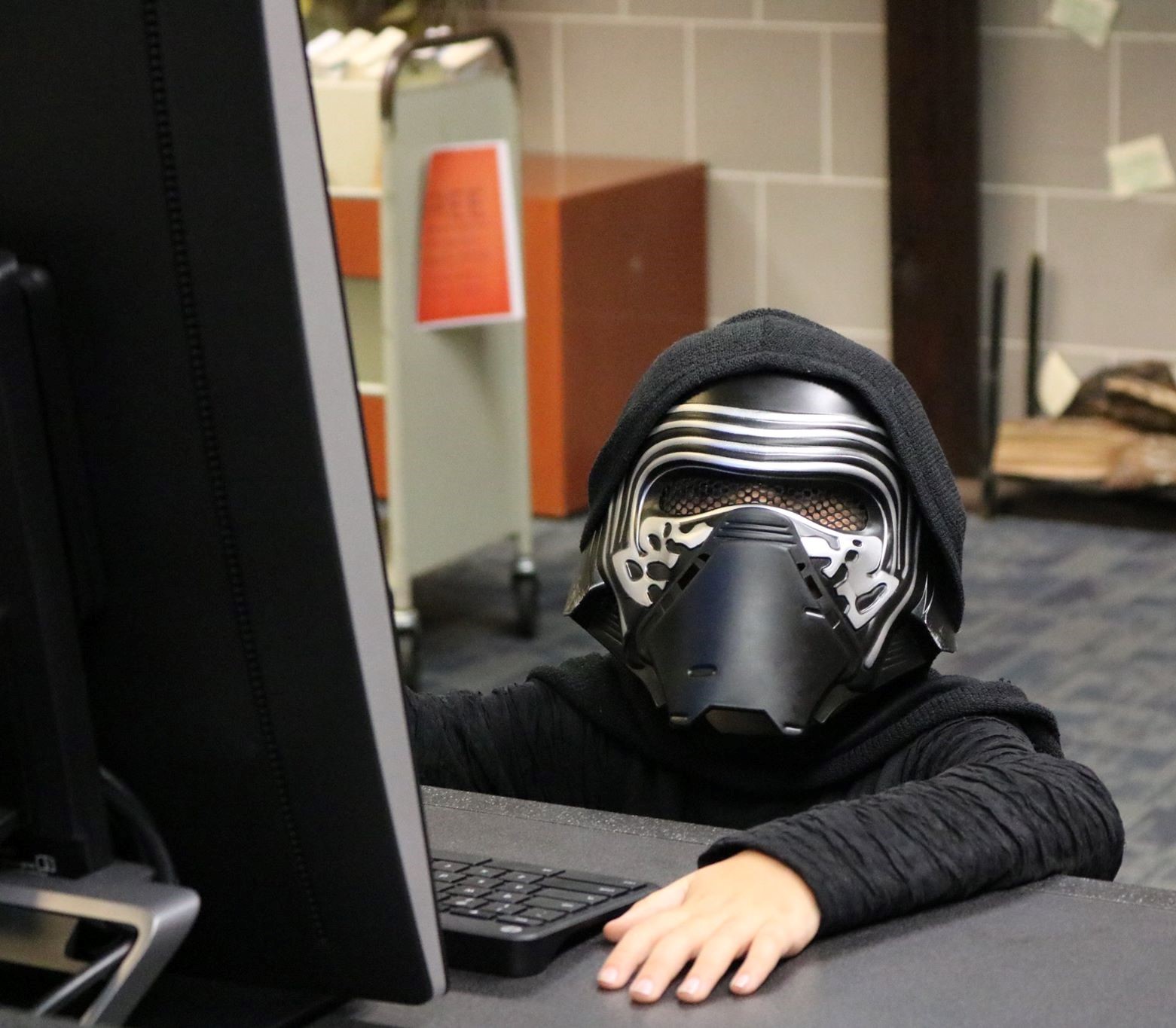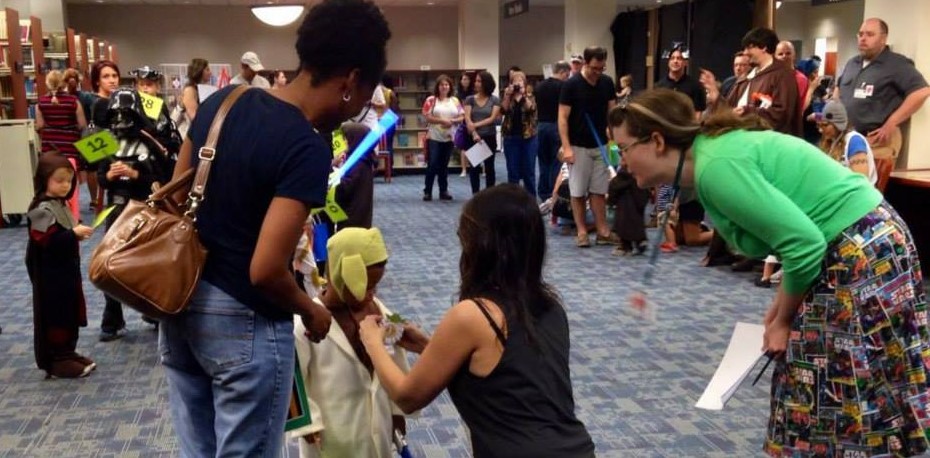By Katie Gray, Archivist, Charleston County Public Library
October 7, 2017. High noon. An important professional decision lay before me. I brought to bear my years of experience, knowledge, professional detachment, and discernment. It was a difficult task, but in consultation with the head of our IT department, as well as an Imperial scout and a Rebel princess, a decision was made…
First prize at the Star Wars Reads Day costume competition went to the cutest Jawa this side of Tatooine.



Photos courtesy of Charleston County Public Library.
Clearly, judging costume contests is not a typical task for an archivist. It certainly isn’t covered in Hunter’s Developing and Maintaining Practical Archives. And you‘d be hard pressed to find Star Wars mentioned at all in the professional archival literature. However, this is a task I undertake every fall, and one that I look forward to with delight.
One of the many advantages of working as an archivist in a public library is the opportunity to reach beyond prescribed archival duties and connect with the community on a personal (and oftentimes fun) level. Over the years, I have worked at senior fairs and community gatherings, at Pride festivals and Friends of the Library book sales. I helped stage a fake rare books heist for a Sherlock Holmes mystery lock-in and taught teens about papermaking and bookbinding during summer book camp. Participating in these events has allowed me to bring a little bit of archives and history into everyday library events, which works well, because, in Charleston, no matter where you are or what the occasion, people are always happy to talk about history.
On the surface, it may seem difficult to justify the use of archival staff time for programming and outreach not specifically dedicated to archives and special collections. Of course, an archivist in a public library must still undertake those duties that are the bedrock of the archival profession: arrangement and description, reference and research, cataloging and conservation, and everything in between. As is the case in so many archival institutions, staffing is limited, and responsibilities are numerous. However, the time spent contributing to programs outside the archives can be a good investment for the professional development of the department and the staff.
In practical terms, participating in collaborative public library programming affords the archivist the opportunity to expand the archives’ outreach to groups that normally would not be archives users and at numbers not often seen at archival events. (1900 people at Star Wars Reads Day alone!) It is an excellent way to build internal, institutional interest in the archives and advocate for its importance to the institution, the users, and the community. It also encourages the creation of robust, collaborative relationships with library colleagues. When I first started working in the archive over 10 years ago, I frequently heard, from both staff and patrons, “We have an archive?” “What do you do back there?” or even “Do you collect fines?” (when we were still called Special Collections). Now, thanks to concerted outreach efforts by the archives staff and the historian, staff and patrons know who we are and what we can do for the community.
I take seriously my duty to preserve and make accessible the historical materials that document the public history of the city and county of Charleston. However, I am also cognizant that the work that I do is in support of the overall mission of my institution: to connect our diverse community to information, foster lifelong learning, and enrich lives. I gladly fulfill my dual role as archivist and public librarian. Every connection I make is an opportunity to both educate the community and to cultivate new archives users. After all, you never know who may grow up to be the next great historian or archivist.

Photos courtesy of Charleston County Public Library.
